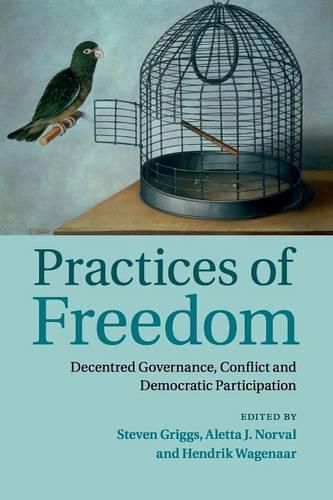Readings Newsletter
Become a Readings Member to make your shopping experience even easier.
Sign in or sign up for free!
You’re not far away from qualifying for FREE standard shipping within Australia
You’ve qualified for FREE standard shipping within Australia
The cart is loading…






The shift from government to governance has become a starting point for many studies of contemporary policy-making and democracy. Practices of Freedom takes a different approach, calling into question this dominant narrative and taking the variety, hybridity and dispersion of social and political practices as its focus of analysis. Bringing together leading scholars in democratic theory and critical policy studies, it draws upon new understandings of radical democracy, practice and interpretative analysis to emphasise the productive role of actors and political conflict in the formation and reproduction of contemporary forms of democratic governance. Integrating theoretical dialogues with detailed empirical studies, this book examines spaces for democratisation, institutional design, democratic criteria and learning, whilst mobilising the frameworks of agonistic and aversive democracy, informality and decentred legitimacy in cases from youth engagement to the Israeli-Palestinian conflict.
$9.00 standard shipping within Australia
FREE standard shipping within Australia for orders over $100.00
Express & International shipping calculated at checkout
The shift from government to governance has become a starting point for many studies of contemporary policy-making and democracy. Practices of Freedom takes a different approach, calling into question this dominant narrative and taking the variety, hybridity and dispersion of social and political practices as its focus of analysis. Bringing together leading scholars in democratic theory and critical policy studies, it draws upon new understandings of radical democracy, practice and interpretative analysis to emphasise the productive role of actors and political conflict in the formation and reproduction of contemporary forms of democratic governance. Integrating theoretical dialogues with detailed empirical studies, this book examines spaces for democratisation, institutional design, democratic criteria and learning, whilst mobilising the frameworks of agonistic and aversive democracy, informality and decentred legitimacy in cases from youth engagement to the Israeli-Palestinian conflict.